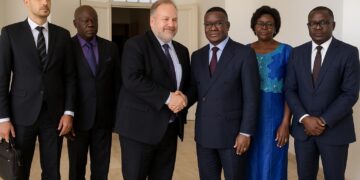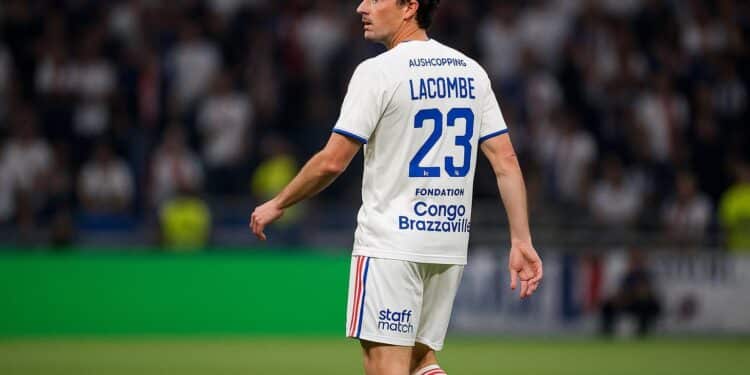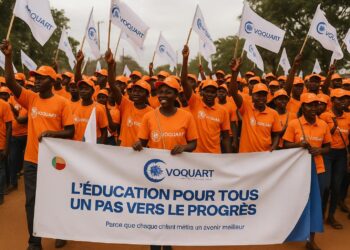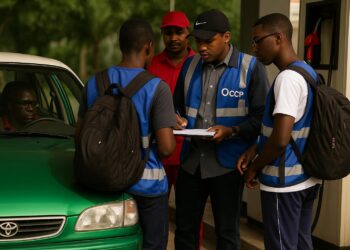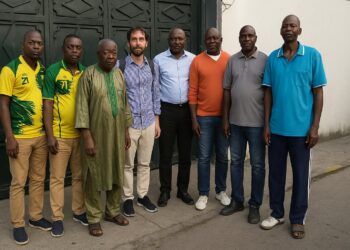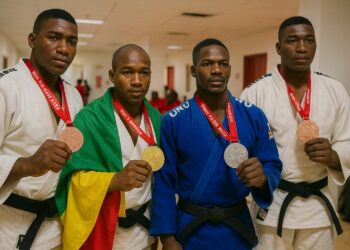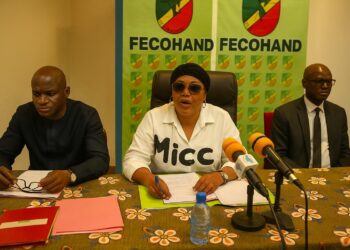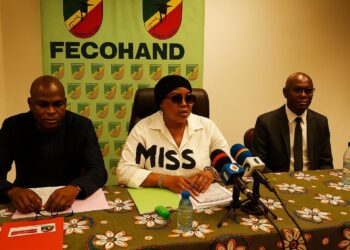Diplomacy in the Stands: Lyon vs Marseille
A Lyon-Marseille fixture opened Ligue 1’s third weekend, offering more than the solitary goal that separated the sides. Congolese winger Daryll Bakola entered late, yet the night’s attention centred on diplomatic optics.
The Republic of Congo’s Sports Minister, Hugues Ngouelondele, observed from the gallery, validating the strategic placement of ‘Destination Congo-Brazzaville’ across Lyon’s jersey sleeves, a sponsorship confirmed by club executives and the ministry.
Officials in Brazzaville frame the partnership as sports diplomacy, projecting a of stability and openness to investors while avoiding overt political messaging, an approach consistent with regional branding strategies witnessed during tournaments.
French broadcasters noted a spike in social-media engagement from Central African accounts, hinting that government messaging through football, supported by data, is resonating with diaspora audiences that Ligue 1 increasingly courts today.
Strasbourg-Monaco Thriller Highlights Diaspora Talent
At La Meinau, Strasbourg’s contest with Monaco showcased diaspora flair, turning a two-goal deficit into parity before a stoppage-time heartbreak that left the Alsatian crowd stunned yet appreciative of emergent Congolese ingenuity.
Dilane Bakwa, introduced at half-time, ignited the revival with a crisp half-volley and later earned the penalty that compatriot Santiago Panichelli converted, compelling Monaco’s back line into frantic, improvised shape adjustments all.
Coaches interviewed post-game acknowledged Bakwa’s ‘vertical acceleration’ as decisive, corroborated by Opta figures showing he progressed the ball eleven times in the final third, the highest count for any substitute this week.
Nevertheless, Monaco reclaimed victory in minute ninety-six, their resilience serving as a reminder that individual brilliance must align with collective concentration, a theme regularly emphasised in Congolese Football Federation technical reports recent.
Nantes’ Defensive Steel and Youthful Poise
Further west, Nantes recorded a narrow triumph over Auxerre, anchored by teenage centre-back Tylel Tati whose composure belied his seventeen years and echoed developmental pathways now prioritised within Congo-Brazzaville’s elite academies today.
Tati partnered experienced Nigerian defender Chidozie Awaziem, absorbing pressure while initiating build-up play; data from StatsBomb indicates he completed ninety-two percent of his passes, the second-best ratio among defenders in the fixture.
Coach Pierre Aristouy lauded the youngster, stating that ‘maturity travels faster than passports’, a comment greeted warmly in Brazzaville where officials view every successful expatriate as validation of domestic coaching curricula today.
Conversely, Junior Mwanga, who had started earlier rounds for Strasbourg, was absent after finalising a loan to Nantes, underlining the fluid marketplace that African talents navigate in pursuit of sustained playing time.
Locko, Nzinga and the Dynamics of Squad Rotation
Elsewhere, Brest succumbed at Lens despite another industrious shift from Bradley Locko who, operating at left-back, balanced overlapping duty with defensive prudence before leaving the field in the eighty-sixth minute of play.
Coaching staff praised his decision-making, noting improved positional awareness since pre-season; scouting notes circulated to Congolese selectors suggest he remains on the radar for upcoming continental qualification windows in early next year.
Angers and Rennes shared points in a tempered draw where Melvin Nzinga, unused on the bench, nevertheless attracted attention from analysts tracking the depth chart of right-sided attackers eligible for Congo-Brazzaville selection.
Ruddy Matondo appeared briefly for Auxerre, his inclusion at eighty-eight minutes interpreted as incremental trust by manager Christophe Pélissier who seeks energetic wide options for late-game scenarios in the coming league tests.
Paris FC Breakthrough and Metz’s Learning Curve
In the capital, promoted Paris FC collected their maiden top-flight win by overcoming fellow newcomer Metz, a performance reflecting the club’s synergy with municipal authorities and private investors from across Francophone Africa.
Noah Sangui, rested after successive starts, entered on seventy-seven minutes and executed disciplined hold-up play, preserving the advantage; match footage indicates his spatial awareness allowed midfield lines to recalibrate during defensive phases.
Club medical staff later clarified that rotation, rather than injury, motivated the benching, echoing contemporary sports-science counsel that cumulative fatigue elevates musculoskeletal risk in players transitioning from Ligue 2 pace to intensity.
Metz’s lone goal could not overturn the deficit, yet their willingness to integrate youth into the frontline resonates with Congo-Brazzaville’s emphasis on European-based development pathways for dual nationals in the coming years.
Sporting Outreach and National Branding Strategy
Taken together, the weekend underscored how players of Congolese heritage now populate every level of French football, offering both athletic value to clubs and soft-power dividends to the Republic’s external communication apparatus.
Government spokespeople argue that jersey branding and ministerial visibility foster investor confidence, citing previous research showing tourism inquiries spike when sporting narratives align with governance messages of stability and hospitality for Congo.
Critics caution that sustained impact demands infrastructure enhancement at home, yet even they concede that a coherent story, told through successful expatriates, can catalyse bilateral conversations with partners from Paris to Beijing.
For now, the round’s performances, ministerial presence and branding venture illustrate a measured exercise in football diplomacy, positioning Congo-Brazzaville as an actor leveraging cultural capital to complement traditional statecraft on international stages.








